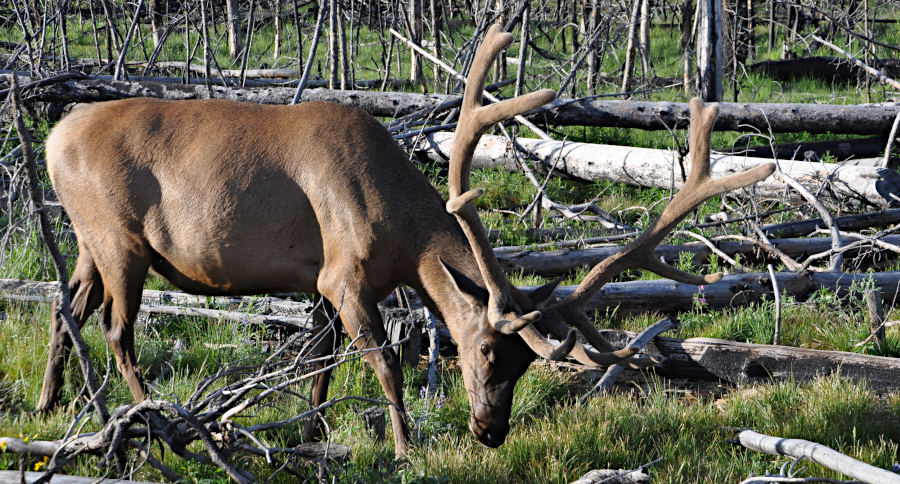Wyoming court rules that Native Americans must follow game regulations when hunting off reservation.
A Sheridan County Circuit Court Judge has ruled that Native Americans must follow the Wyoming Game and Fish department's regulations when they hunt off an established reservation.
The Gillette News Record reports Judge Shelley Cundiff made the ruling in the case on June 11 in a larger case that dates to January 2014.
The case began when Apasaalooke tribal member Clayvin Herrera was hunting elk with some friends on the border of Wyoming and Montana. Herrera ended up shooting an elk that jumped a fence over the border into the Bighorn National Forest in Wyoming. Herrera did not have a hunting license for the Equality State and the season for elk was closed at the time when he went over the fence to retrieve it.
Herrera was found guilty of poaching but decided to fight the case and it ended up going all the way to the U.S. Supreme Court due to a nearly 150-year-old treaty between the U.S. Government and the Apsaalooke. The Treaty of Fort Laramie protected the tribe's hunting rights in their traditional homeland.
The case of Herrera v. Wyoming became a question of whether the treaty was still valid due to wording about rights remaining so long as the lands remained "unoccupied." The state tried to argue that the establishment of Wyoming as a state and establishment of the Bighorn National Forest was when the lands ceased to be unoccupied. However, Herrera won the case when the Supreme Court ruled the tribe's treaty rights could only be ended by congress. They ended up citing precedence from several similar cases in the ruling.
However, the Supreme Court also ruled that "Wyoming could regulate the exercise of the 1868 Treaty right in the interest of conservation." That kicked the case back down to the state courts. The question being if the area the elk was killed was indeed an unoccupied land and if treaty hunters are subject to fish and game laws.
In making his decision, Cundiff cited "Crow Tribe of Indians v. Repsis," a similar case from 1989. In that case, an agreement was reached between the Apasaalooke and Wyoming Game and Fish about the need for regulations for off-reservation treaty hunting. He also cited an Apasaalooke Fish and Wildlife code from 1992 for regulations for members who hunt off reservation.
"This court, following the decision in Crow Tribe of Indians v. Repsis...denied the motion finding that the BNF (Bighorn National Forest) was occupied and if not occupied, there was a conservation necessity to regulate Treaty Hunters," Cundiff wrote in his decision.
For more outdoor content from Travis Smola, be sure to follow him on Twitter and check out his Geocaching and Outdoors with Travis YouTube channels.
NEXT: THE AXIS DEER AND HOW THEY ARE IMPACTING PARTS OF THE UNITED STATES
WATCH





